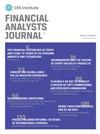Assessing the Complementarity of Preferential Tax Regimes in the Sakhalin Region
IF 3.4
3区 经济学
Q1 BUSINESS, FINANCE
引用次数: 0
Abstract
State regulation of the anthropogenic impact on nature, including the policy of limiting greenhouse gas emissions, makes it necessary to support those enterprises that are willing to invest in climate projects. The relevance of incentives in this field is confirmed by the task set by the Arctic Council chaired by Russia at the Research and Training Conference on Climate Change and Permafrost Thawing 2023, namely to find reasonable, practical solutions for adapting the global economy to such changes. In the area of taxation, there is a solution prepared by the Russian Ministry of Economic Development willing to provide a package of tax benefits for investors. According to the draft, they should be exempted from paying VAT and income tax. At the same time, the variety of previously introduced preferential ‘investment’ tax regimes calls into question the rationality of new tax incentives due to the assumption of their redundancy. The fact is that they have similarities in the basic idea of support aimed at the growth of regional investment activity. For this reason, the purpose of the article is to answer the following questions: Is it really worthwhile to expand the number of tax regimes once again? Is it possible to use existing incentives instead of introducing new ones? To achieve the purpose, we rely on the results of comprehensive, comparative analysis of the developed incentives and the current tax preferential regimes on the example of the Sakhalin region. It stands out among other regions of Russia by its carbon-neutral pilot project and the greater number of preferences already enjoyed by investors, so we can provide representative and practically significant results. The hypothesis of the study is based on the concept of complementarity, meaning that the newly developed tax incentives will contribute to the complexity of the Russian tax system but will not cross the scope of the other mentioned tax regimes. The results show that climate projects have their own specifics in terms of objectives as well as areas of investment that require special approaches in tax policy, since investors create a useful economic effect in the form of reducing greenhouse gas emissions rather than producing goods, and no taxable profit is generated until the investor profitably sells carbon units in the market.评估库页岛地区优惠税收制度的互补性
国家对人类活动对自然影响的监管,包括限制温室气体排放的政策,使得有必要支持那些愿意投资气候项目的企业。由俄罗斯主持的北极理事会在2023年气候变化与冻土融化研究与培训会议上提出的任务确认了这一领域激励措施的相关性,即寻找合理、实用的解决方案,使全球经济适应这种变化。在税收方面,俄罗斯经济发展部准备了一个解决方案,愿意为投资者提供一揽子税收优惠。根据草案,他们应该免征增值税和所得税。与此同时,之前引入的各种优惠“投资”税收制度,由于假设其冗余性,对新税收激励的合理性提出了质疑。事实是,它们在支持区域投资活动增长的基本理念上有相似之处。因此,本文的目的是回答以下问题:再次扩大税收制度的数量真的值得吗?是否有可能使用现有的激励措施,而不是引入新的激励措施?为了实现这一目的,我们以库页岛地区为例,依靠对已开发的激励措施和现行税收优惠制度进行全面、比较分析的结果。它的碳中和试点项目和投资者已经享有的更多优惠,在俄罗斯其他地区中脱颖而出,因此我们可以提供具有代表性和实际意义的结果。这项研究的假设是基于互补性的概念,这意味着新制定的税收激励措施将增加俄罗斯税收制度的复杂性,但不会超出上述其他税收制度的范围。结果表明,气候项目在目标和投资领域方面都有自己的特点,需要在税收政策方面采取特殊措施,因为投资者以减少温室气体排放的形式创造了有益的经济效应,而不是生产商品,除非投资者在市场上出售碳单位获利,否则不会产生应税利润。
本文章由计算机程序翻译,如有差异,请以英文原文为准。
求助全文
约1分钟内获得全文
求助全文
来源期刊

Financial Analysts Journal
BUSINESS, FINANCE-
CiteScore
5.40
自引率
7.10%
发文量
31
期刊介绍:
The Financial Analysts Journal aims to be the leading practitioner journal in the investment management community by advancing the knowledge and understanding of the practice of investment management through the publication of rigorous, peer-reviewed, practitioner-relevant research from leading academics and practitioners.
 求助内容:
求助内容: 应助结果提醒方式:
应助结果提醒方式:


